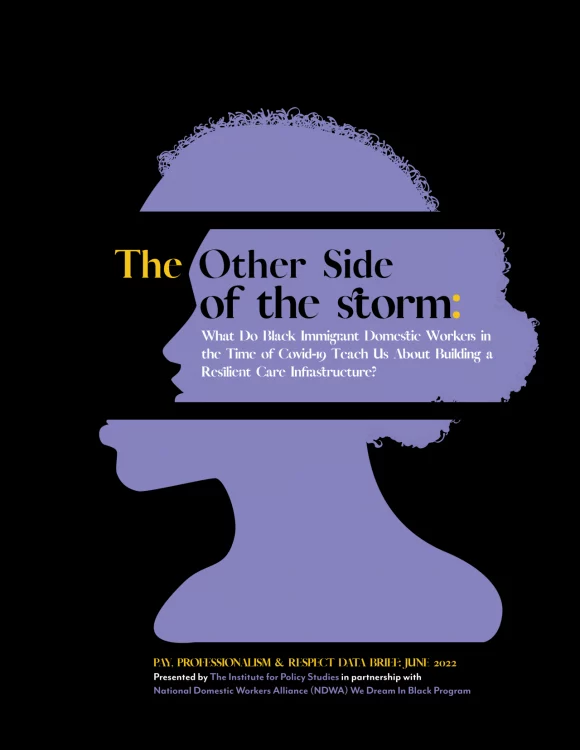The Other Side of the Storm
Share
Explore Our Galleries
Breaking News!
Today's news and culture by Black and other reporters in the Black and mainstream media.
Ways to Support ABHM?
By Kim Freeman Brown and Marc Bayard, The Institute for Policy Studies
What Do Black Immigrant Domestic Workers in the Time of Covid-19 Teach Us About Building a Resilient Care Infrastructure?

Throughout the pandemic, Black immigrant workers have served on the frontlines, serving as a backbone to our economy.
The Other Side of the Storm is a follow-up to NDWA’s initial Notes from the Storm report, which examined the experiences of Black immigrant domestic workers in Miami, New York, and Massachusetts just as the pandemic hit in 2020. The Other Side of the Storm returned to these regions in 2021 and features data and anecdotes from surveys, focus groups, and interviews of more than 1,000 respondents.
The swift and devastating consequences of the global pandemic in the United States in early 2020 laid bare a number of irrefutable realities. First, while the pandemic affected everyone in America, its impact was more severe among low-income families, Black, Latinx, and other communities of color. Second, our physical survival and economic recovery from the increasingly frequent and severe public health and environmental and economic crises hinge not only on the strength of our physical infrastructure but on our human-based “care infrastructure” — doctors, nurses, first responders, and other essential workers like direct care and domestic workers.
In the early months of the pandemic, healthcare and other essential workers rightfully received media coverage and support for the role they played – often at life-threatening risk – to protect, care for and save the public. But there was one sector of this essential care infrastructure whose experiences went unnoticed: domestic workers. These essential workers are a vital and often invisible workforce within the healthcare and broader care economy. It is disproportionately composed of women of color and immigrants who care for the elderly, children, and people with disabilities and make work possible for those who must work away from home.
Check out the full report and frustrating statistics.
Domestic workers make up one portion of Black Americans who are still impacted by COVID.
More breaking news here.











Comments Are Welcome
Note: We moderate submissions in order to create a space for meaningful dialogue, a space where museum visitors – adults and youth –– can exchange informed, thoughtful, and relevant comments that add value to our exhibits.
Racial slurs, personal attacks, obscenity, profanity, and SHOUTING do not meet the above standard. Such comments are posted in the exhibit Hateful Speech. Commercial promotions, impersonations, and incoherent comments likewise fail to meet our goals, so will not be posted. Submissions longer than 120 words will be shortened.
See our full Comments Policy here.